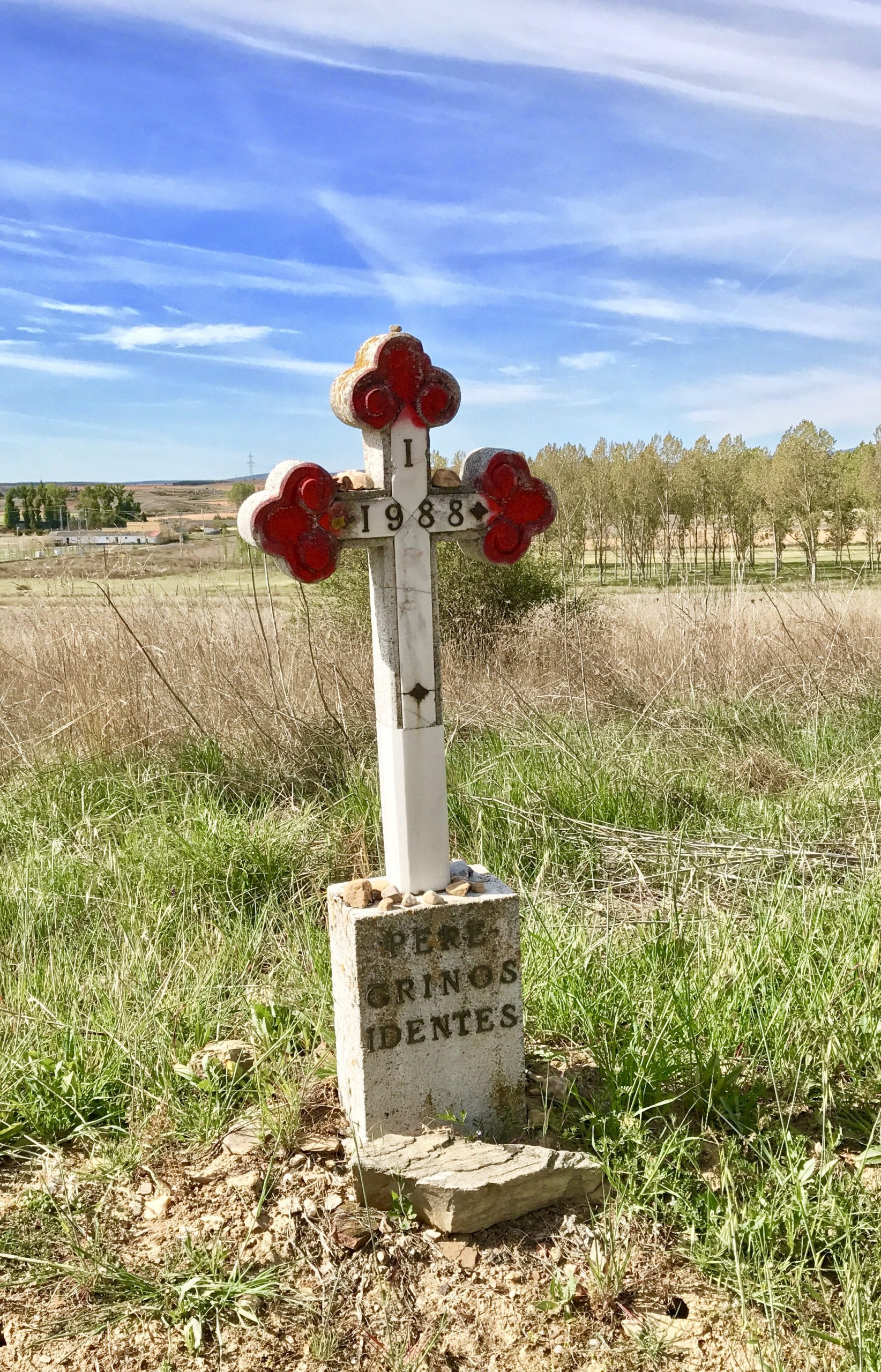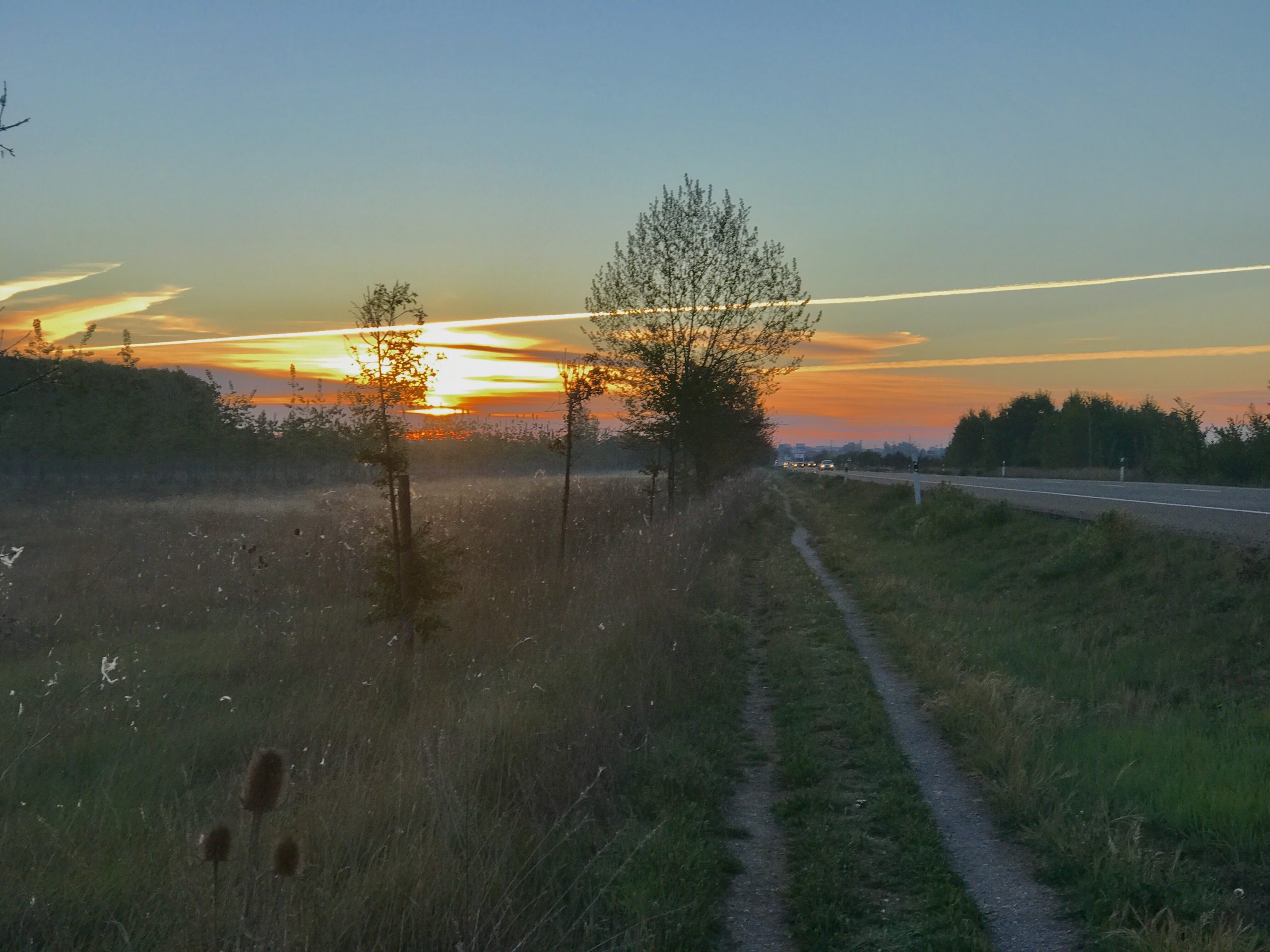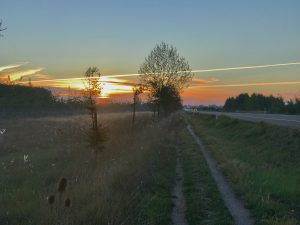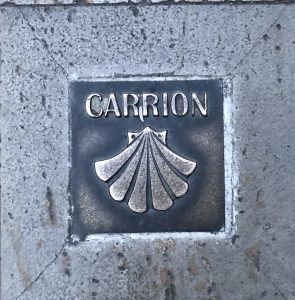Back to the Foothills
8 May – Finally, the trail is leading us out of the Meseta – the miles and miles of wheat fields that turned into roads, city suburbs and industrial parks. What started out as a beautiful and contemplative trail (dirt Yellow Brick Road) turned into asphalt and cement and trucks closely whizzing by at speeds way too fast. I found the first two days in the Meseta to be quite serene, the last three days, not so much. I’m happy to be in the foot hills of whatever mountain range is in front of us for some different terrain and cooler temperatures. In the distance one can still see patches of snow. The next few days the trail may be physically more challenging, but at least the Hell of the asphalt is behind. (Leaving the Meseta)
Bric a brac
Here’s a couple odds and ends thoughts to clean up the back log of ideas to blog about.
So, no shit, there I was at 0630 burrowing out of a hotel window. As you’ve previously read, I leave for trail early in the morning. Most hotels just ask you to leave the key in the door and show you which door to exit (one that locks behind you). One morning a few days back I found myself locked in the stairwell with no where to go. The door to the hotel restaurant and main entrance was locked. The side exit door was locked. My room key worked on neither.
I retraced my route from the room to see if I missed and emergency or fire exit, none was to be found. ‘Shit!’ I was pissed! I had no desire to meditate in the stairwell until the owners showed up to open up. Fortunately, there was a small window that I could open and slide my backpack through. Equally fortunately, it was big enough for me to follow. If they have security cameras and ever review their tapes, I wonder what they’ll think when the see me squirming through a window at O dark thirty. Sometimes the urge to get back on the trail is irresistible.
Dancing Irish Girl
I was walking a trail and coming up on an Irish father daughter team that I’d met previously. I was still quite some distance and with my glasses off the image was not quite distinct. But what I saw was a woman dancing and prancing on this isolated trail. My first through was there’s a problem and I should move up quickly for help. But there didn’t really seem to be a sense of urgency about her movements.
Then I though she might have to go the bathroom and and was prancing away just to stave off the urge for a few more minutes. But as there was a field with trees, this scenario didn’t fit. As I got closer, I noted she didn’t have earbuds in and thought she either had a song in her heart, or was insane from the heat. Not so, her father was sitting on the ground, previously out of site, changing his socks.
After the normal greetings, I asked her why she was dancing, was she so happy? She looked at me like I was a lunatic….then, it all became clear. If you ever walked or ran long distances with a load you know what she was doing. When you stop walking after so much impact on your feet, it hurts; it really hurts. The blood rushes back to your feet and all your nerve endings fire up. After a few minutes it’s subsides, but when you put a load back on the feet, it’s worse. Your feet feel like a thumb slammed in a door. It takes a few minutes of walking to get over the initial pains and return to your normal blister, hotspot, and ligament pains.
For my Irish friend, the pain wasn’t worth the break so she just danced away while her father changed out socks. Every time I ran into the team later on the trail, I broke out in a jig, just to mock her, in a friendly way. Her father enjoyed that as she was quite the task master at keeping him moving. I’m an Ass, but we all had a memorable experience. Besides, I got to walk with them the rest of the day (only the second time I’ve not walked solo) and had a wonderful time chatting about all things under the sun.
‘Buen Camino’
In the Army we have the word ‘Hua’. It’s more of a grunt than a word and it can mean anything you want it to mean. With the word Hua, intonation is everything. With proper enunciation it could mean, good morning, or goodby or a question, or an affirmative, declarative statement. It’s all in the tone. To the adept, whole discussions can be had with the word Hua alone. The utterance of ‘Buen Camino’ is taking on the same utility in spoken brevity. ‘Good morning’, ‘Buen Camino’. ‘Good Bye’, ‘Buen Camino’. ‘Is everything OK?’, ‘Buen Camino?’ And with a simple little modifier it opens up to a new world of meanings – “Buen F***ing Camino”. It’s turning into a very useful phrase.
Scallop Shells
Symbology is important in all our lives. They serve like brevity codes for all sorts of experiences and emotions. In the Army a set of Parachute Wings or a Ranger Tab evokes all degrees of respect and appreciation because most understand the level of commitment and toil necessary to earn one. There’s a brotherhood (and sisterhood) of pride and respect because of the common experiences.
Today on the trail I noticed a similar shift towards the value of the ever present scalloped shell symbol. In the beginning of the trip, it was just a marking to help us negotiate our way along the path, it pointed us in the right direction. It showed us where the trail was (along with the little yellow arrows) and identified Alburgees and bars & cafes where a Caminoite could get service. It was helpful and that was it. Today, after about three weeks and Over 500 kilometers along the trail the shell’s meaning began to take on a whole new meaning, much like my Master Parachutist Wings and Ranger Tab. There’s a growing sense of pride in seeing the shell as I begin to understand much of what it represents. It’s interesting how we pick up on these subtleties of change.
The Cruz Ferro
One of the highlights along the Camino is coming across the Cruz Ferro, the Iron Cross. It sits in the mountains near the highest point of the trail. It’s been here to welcome Pilgrims and Caminonites for centuries and has served as a monument to relieved burdens. The lore is that one should bring from their home, or the flatlands below, a stone to represent their troubles. When they arrive at the Cross, they place it at its base as a token gesture for leaving one’s burdens behind. The burdens represent whatever the walker wishes it to, but it’s meant to leave behind a portion of your life that must stay behind before moving on.
His Cruz
The other day I had the chance to walk with a gentleman who also served in his nation’s military for over three decades, we had much to chat about. We arrived at the ultimate discussion of ‘why are you here’. His story froze me in time. A few years back his wife was diagnosed with incurable cancer. The last eighteen months of her life was painful and unbearable for her, her children and her husband. Somewhere along the treatment a gypsy woman gave her a small pebble meant to comfort her. She had it with her, and rubbed it and kissed it until her end.
Towards the end, her husband, my walking mate, told her that his plan after her death was to take the stone on the Camino and leave it at the Cruz Ferro. This leg of the journey was for her, the remainder of the trip to Santiago was to learn how to live without her. She smiled, said it was a great idea, kissed it, and never said another word. Tomorrow, which is a year later, we will come accords the Cross.
My new camino friend was with me in the restaurant tonight. It will be a tough day for him tomorrow as he leaves the pebble behind (if he can) and continues on the Santiago, if he can. Such stories humble and ennoble the spirit.
Hasta

Interesting Links (leaving the Meseta)
- Photos along the Camino and throughout the Iberian Peninsula
- Return to the beginning of this Journal Blog
- Enjoy our Journal Blog about our travels throughout Italy
Leaving the Meseta Leaving the Meseta Leaving the Meseta Leaving the Meseta



I had to laugh about you beeing trapped in the stairwall. Sounds somehow like my absentminded Darren……. I like the story about your new friend that lost his wife, and I am also saddened by it. But still, it’s wonderful to hear about his hike to put the pebble at the right place. A few more days and I’ll be hearing stories too
Great stories, Darren!